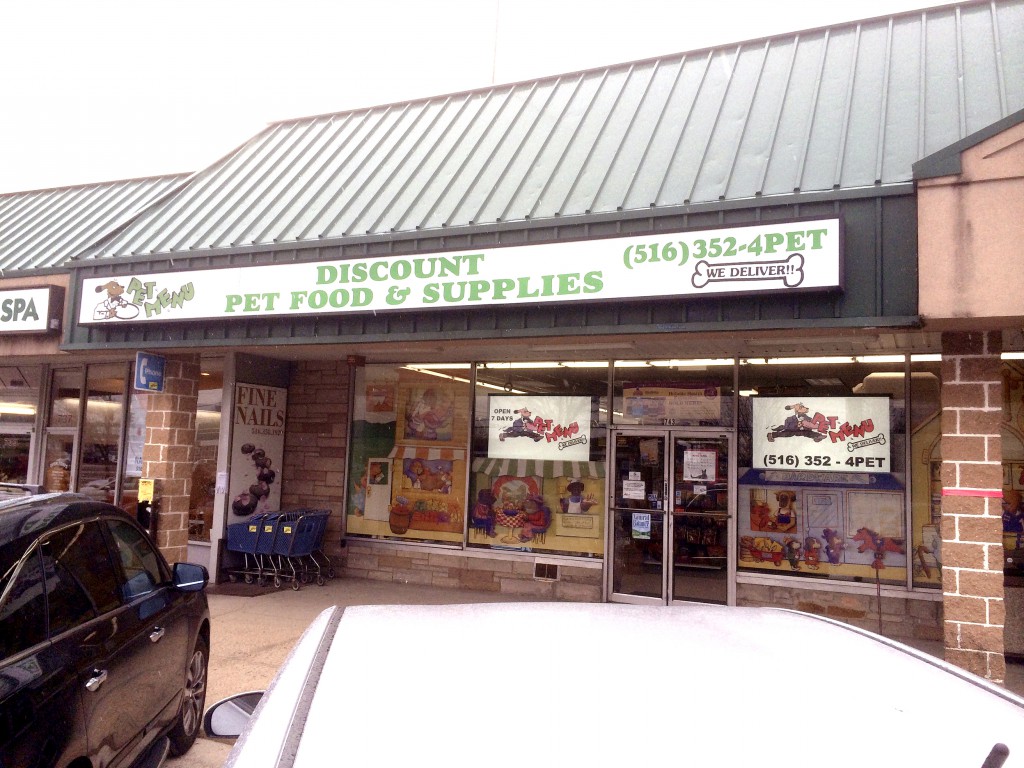 For Abe Kanfer, owner of Pet Menu in New Hyde Park, running a pet store is not just squeaky toys and Beggin’ Strips. He feels knowledge is power when instructing pet owners about food, toys and pet health.
For Abe Kanfer, owner of Pet Menu in New Hyde Park, running a pet store is not just squeaky toys and Beggin’ Strips. He feels knowledge is power when instructing pet owners about food, toys and pet health.
“We want to be a source of information for pet owners,” Kanfer said. “Of course you’d like to sell and make profit. But we get our reward from people coming back and saying ‘that food you recommended did the trick. My dog is feeling better.’ Then from there, I know it’s going to be word of mouth.”
Pet Menu started in New York City 25 years ago and opened its New Hyde Park location less than two years ago.
“We’re happy with the neighborhood,” said Kanfer, who lives in Great Neck. “From what I understand, New Hyde Park is one of the largest populations with dog ownership in Nassau County.”
Kanfer goes the extra mile in learning about pet nutrition. He recently traveled to Oxbow Pet Foods in Ohio to brush up on small animal nutrition with their in-house veterinarian who aids in the formulation process of pet food.
“Those types of educational seminars that we attend is what keeps us ahead of the game,” said Kanfer. “We find out what the better foods are. We find out what the nutritional needs are.”
Concerning diet and health needs, Kanfer feels education helps him guide his customers.
“We’re there to guide people in the decision-making process,” he said. “If a dog has a certain diet, we want to guide pet owners in the information they received from a veterinarian and the like. If a pet needs a light-food diet, we want to suggest the right ones.”
A diet can also depend on stress, skin/coat issues, etc. Carrying the right food is crucial, Kanfer says.
“We’ve been ahead of the curve in foods we carry,” Kanfer stated. “We’ve had all natural foods since the beginning. We are always looking for the better nutrition, the better formula.”
This helps Pet Menu stay ahead of food recalls. Kanfer said the pet food industry is working on “self-regulation” and an “approval process,” similar to what the Food and Drug Administration utilizes.
“We use [Association of American Food Control Officers], which is basically a nutritional requirement,” he said. “It’s voluntary. We try as best as possible to stick with companies that have a good reputation and are well-known for being meticulous with their cleanliness and sourcing of ingredients. Mass brands have been hit the hardest [with recalls].”



































